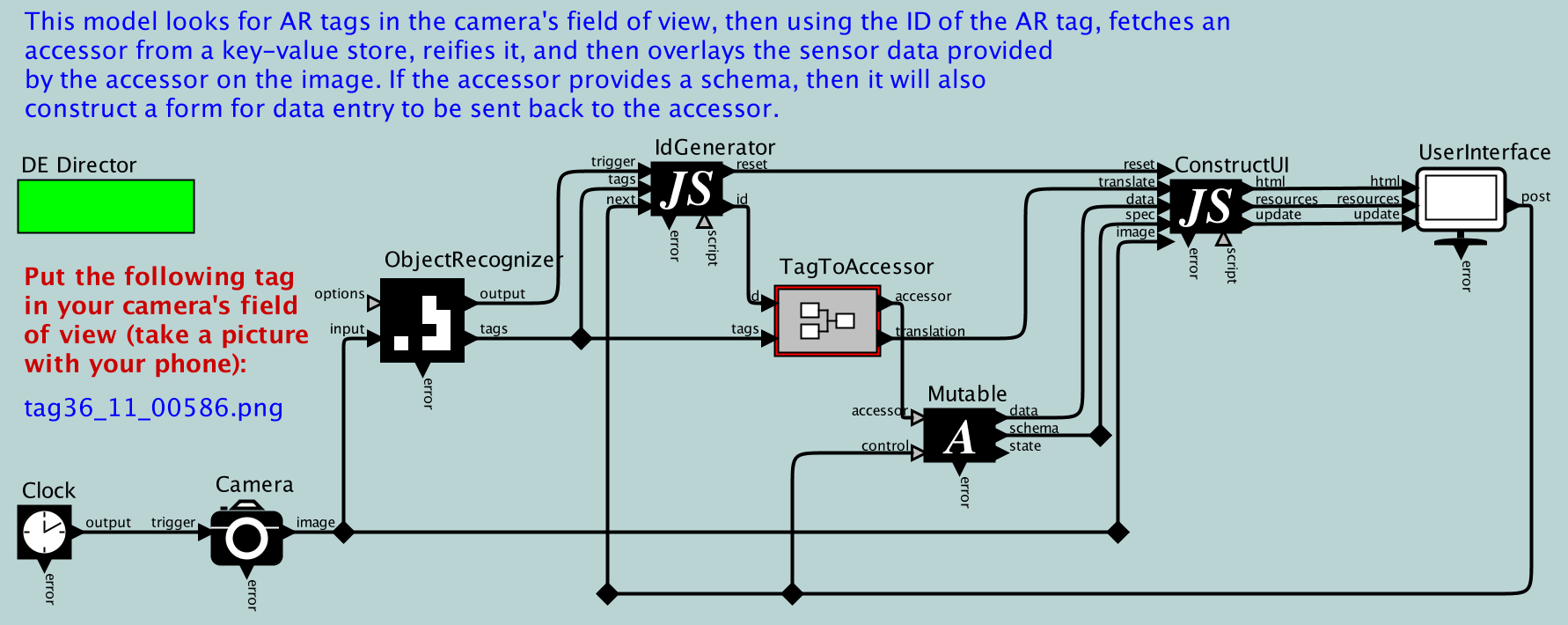|
capecode
capecode - IoT Modeling environment

CapeCode is a development environment and host for applications that use accessors, described at accessors.org. CapeCode provides a block diagram editor for prototyping IoT applications and code generators for deploying those applications on other accessor hosts.
CapeCode is a configuration of Ptolemy II. You will need the latest version in the SVN repository, not the 10.0 release. See the Ptolemy II CapeCode page for installation instructions. Once you have downloaded and built Ptolemy II, invoke
$PTII/bin/capecode
to start the visual editor with the CapeCode configuration. CapeCode has the convenient feature that it automatically imports all the accessors at http://accessors.org and makes them available in an actor library to drag and drop into applications. The splash screen has links to a few demos.
For a tutorial on Ptolemy II, see the Ptolemy Book (a free download).
CapeCode Tutorial: Tue. Dec. 5, Paris
See the Tutor 2017 CapeCode Tutorial page for details.
Resources
- CapeCode is a configuration in Ptolemy II. To use CapeCode, see CapeCode in the Accessors Wiki
- CapeCode0.1.devel released on December 22, 2017.
- Edward A. Lee. Accessors: A Software Architecture for
IoT, March 30, 2017; Presented at Google.
- Marten Lohstroh, Ilge Akkaya, Christopher Brooks, Edward A. Lee. Building
IoT Applications with Accessors in
CapeCode, April 12, 2016; Poster presented at CPSWeek, Austria.
- Edward A. Lee. Accessor Hosts: Cape Code, Browsers, Node.js,
Duktape..., Talk, January 13, 2016; Presented at the Urban
Heartbeat Workshop, Berkeley. (TerraSwarm Only)
- Beth Osyk, Edward A. Lee, Marten Lohstroh, Chris Shaver,
Armin Wasicek, Matt Weber. A Vision of Swarmlets, IEEE Internet
Computing, Special Issue on Building Internet of Things
Software, 19(2):20-29, March 2015.
- Accessors
- CapeCode in the Accessors Wiki
- Information about Ptolemy II
- CapeCode License
- This page may be edited. There is no svn repository right now.
This work was supported in part by the TerraSwarm Research Center, one of six centers supported by the STARnet phase of the Focus Center Research Program (FCRP) a Semiconductor Research Corporation program sponsored by MARCO and DARPA.
This group has the following subpages:
|



